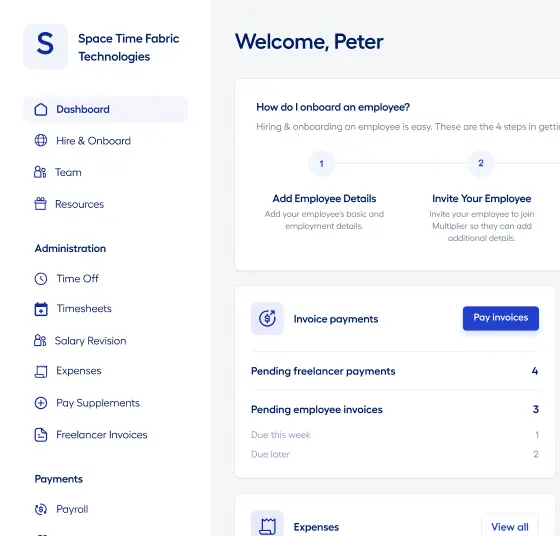Global expansion is a vision for several entrepreneurs.
It is an exhilarating opportunity for businesses. But it comes with stress, enormous expenses, and risks.
Access to new markets. High returns on investment. New revenue streams. These are a few of the benefits of overseas expansion.
However, to enjoy these benefits, it is necessary to plan international expansion strategies.
By following a strategic pathway, a business can seize the opportunity and expand its global footprint.
This article is all about global expansion strategy – what it is, the steps to creating an overseas expansion strategy, and a list of a few strategies.
So, let’s begin the exploration!
What does International Expansion Strategy Mean?
International expansion strategies are multi-level strategic plans for growth. A business develops a global expansion strategy to enter a foreign market, establish the brand, and become profitable.
With a global expansion strategy, growth becomes more planned and sustainable. These plans, when framed properly, make the business more capable. It helps with expansion risk mitigation, efficient usage of resources, timelines, and finances.
Steps to Consider Before Coming Up With an International Expansion Strategy
As a business, you might have different reasons to expand globally. You might consider planning foreign expansion strategies.
But, before diving into decision-making or starting planning your global market expansion strategies, here are a few steps to consider.
1. Explore international expansion business case
When planning entry strategies for global expansion, you might have a specific market in mind. Or you might have international expansion plans but are not sure about the location.
In either case, you must create a detailed business case before making the expansion decision and the global expansion strategy you will use.
In a few cases of global expansion, established brands had failed to conquer a new market even after robust planning.
For example, Walmart failed to capture the German market. Despite proper planning, in this global expansion strategy example, the cultural nuances of the market were not considered by Walmart.
Here are a few elements that you must consider to avoid the risk of such failures in the foreign market.
- Market Research – Arrange for market research commissioned from your target country. Make sure you stay updated on information. Market research will help you understand the market where you wish to enter.
- SWOT – Stands for Strength, Weakness, Opportunity, Threat – SWOT helps analyze the expansion prospect. SWOT analysis points out any differences that might be relevant to the business.
- Marketing Strategy – Create a marketing strategy for the new foreign market. Does your existing strategy fit the market? What will be your value proposition? How will you position your product?
- Competitor Analysis – Study the existing competition in the market. Compare their offerings with yours to improve your strategy.
2. Study the probable financial impact on business
Before creating your international market expansion strategy, you must estimate the financial impacts.
How much will the business earn if the global expansion is a success? If the company is not received well in the new market, what can be your probable losses?
Other than answering these questions, consider;
- Funding – How will you fund the international business expansion strategy? Will you fund through debt, equity, or both? Is the business ready to invest?
- Effects on Brand Reputation – Ensure that your business is ready to take the load of international expansion. Make suitable legal and financial arrangements to minimize the negative impacts of failure on the brand’s reputation.
3. Consider legal and compliance issues
When you decide to develop an international expansion strategy framework, compliance is necessary.
Moving to a new country means complying with their regulations. Hence, you must be familiar with the tax system, trading regulations, workers’ compensation, and labor laws.
Along with these, you must also stay updated with information related to employment. Plus, the health and safety obligations that a business must follow.
4. Collaborate with a global hiring agency
A global expansion and business-level strategy are incomplete without considering global staffing issues.
To market your product in the new territory, you need capable employees with specific skill sets. So, ensure that you employ staff quickly and compliantly.
But, how?
With the help of a Professional Employer Organization or PEO. Such a global staffing partner can quickly onboard capable staff and focus on growing the business.
5. Restructure your recruitment approach
This is the final step before you begin implementing your global expansion strategy.
Refine your recruitment process. Partner with a global recruitment agency and access the global talent pool. Access both local and international applicants. Then pick the one suited for the position.
6. Pick your international expansion strategy
After exploring the above steps, you can decide on your international expansion strategy to enter the market. You can choose the multi-domestic, regionalized, or even a globalized approach for your global expansion.
Pick your international expansion strategy aligned with the business goal, finances, and recruitment.
5 International Expansion Strategies You Must Know
You might be wondering what a global expansion strategy is, or you might as well be in the middle of creating one. In either case, here are five types of international expansion strategies that you must consider before progressing.
1. Choose the right global partners
When you are out there in a foreign market, you will likely realize that the foreign market is a difficult nut to crack.
You need to understand the customer needs market demographics, understand the local cultures, and work accordingly to drive demand. Besides, you might also not know where to find the right employees and compliance with labor and tax laws.
To avoid any misstep in this initial phase, you must find global partners to work with. For instance, you might partner with a PEO. Start with getting the right employees. With these employees, you will navigate the market better and understand local cultures easily.
2. Adopt proactive thinking
Prevention is better than cure. Similarly, in international expansion, being proactive works well than being reactive.
If you are not ready with a global expansion strategy, you might face challenges while responding to crises. While a reactive approach might work well in your home country, proactive thinking is essential in international expansion.
Prepare for the challenges and opportunities of the unfamiliar market. Plan a long-term international expansion strategy, understand ct the likely difficulties, and take proactive steps to make your global expansion strategy successful.
3. Adopt the lean approach
Enter an international market with a lean approach. This approach helps the business to remain flexible to ‘fail-fast.’
Using this approach, you can quickly understand what works for the customer and what doesn’t. As you know the market better, keep making rapid improvements. Invest in infrastructure only when you are sure about the new market expansion.
Hiring local talents can help you improve your strategy, evaluate opportunities, and improve your product to fit the market needs.
4. Create a detailed strategy for your product
When conducting market research, focus on predicting how the customers will receive your product/service.
Will your product/service fit in the new market? What makes you stand out from competitors? Why should people choose you?
Once you develop a clear product strategy, you can redefine your product or position in the new market. A product strategy will help prospects and customers to know your product better. Also, you will understand what exactly the customers want from you.
5. Make reinvestments in the business
When you are proactively planning for international expansion, ensure that reinvesting is a part of your global expansion strategy.
Consider putting your revenues in the global expansion. Look at the revenue gains from the international expansion as reinvestment opportunities. The decision of where to reinvest is yours—either used for financing your expansion to other markets or marketing.
This international expansion strategy is especially beneficial for business owners who only have their eyes set on global expansion.
Develop a Perfect Global Expansion Strategy with Multiplier
The road to global expansion is full of twists and turns. How about using a SaaS onboarding platform that eases your job? Enter Multiplier!
Multiplier can speed up your global expansion game and help you with the following activities:
- Collaborating with independent contractors
- Managing payroll and benefits for freelancers
- Creating compliant employment contracts
Want to explore further? Book your free demo!







